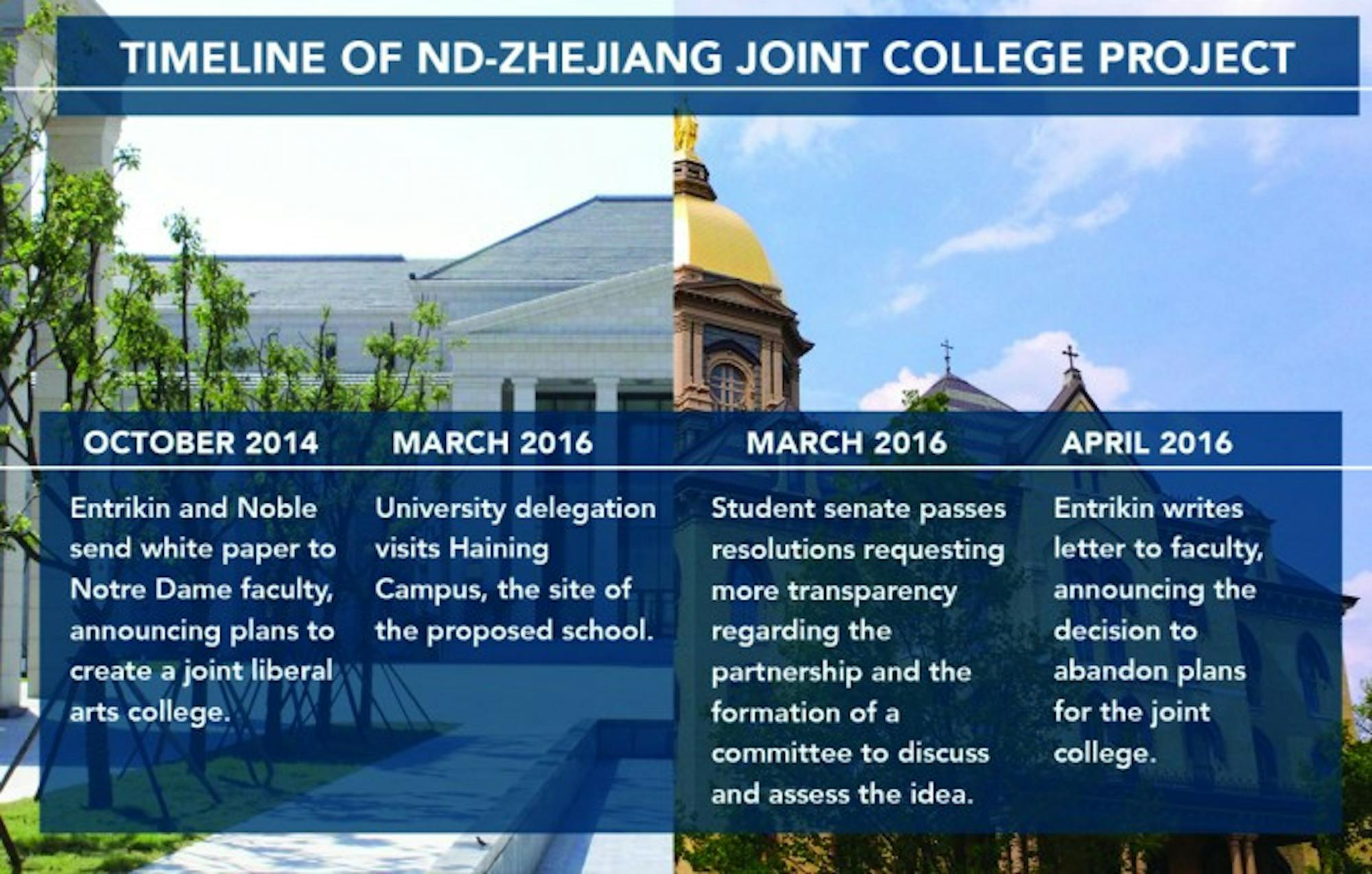The University is no longer pursuing plans to establish a joint college with Zhejiang University (ZJU) in China, according to a letter addressed to faculty from J. Nicholas Entrikin, vice president and associate provost for internationalization, sent Monday morning.
Although Notre Dame will continue to foster a relationship with ZJU through exchange programs and research projects, the two universities decided not to embark on the joint venture due to challenges that arose during the deliberation process, Entrikin said in the letter.
“After many hopeful and positive conversations on both curricular and administrative matters related to the joint college, we were more easily able to discriminate and to delineate some of the key challenges as well as advantages in bringing together two very different approaches to higher education,” Entrikin said. “Thorough effort was expended in addressing these complexities, and at times the conversations showed exhilarating signs of progress.
“In the end, however, some areas remained challenging for both universities, and we decided that broader cooperation would be a more effective means for achieving our common interests.”
Entrikin and Jonathan Noble, acting executive director for the Liu Institute for Asia and Asian Studies, wrote a white paper addressed to Notre Dame faculty members in October 2014 explaining the possible collaboration between the two schools.
The white paper said the joint liberal arts college aimed to “advance Notre Dame’s global academic reputation; promote worldwide Notre Dame’s unique and successful blend of teaching, research and service and offer opportunities for Notre Dame faculty and students to gain valuable experience teaching and studying in China.”
According to the original white paper proposal, the Notre Dame-ZJU joint liberal arts college would have opened the 2017-2018 academic year. The student body would have been composed of 70 percent Chinese students and 30 percent international students. The college’s faculty would have been composed of members from both universities, and graduating students would have received a joint degree from both Notre Dame and ZJU.
Over the past two years, faculty advisory delegations from both universities have made multiple campus visits — to both South Bend and Haining — to examine the project, Entrikin said. The committee reached its final conclusion after the most recent visit to China, made by a delegation that included Entrikin, University President Fr. John Jenkins, Vice President for Mission Engagement and Church Affairs Fr. William Lies and several members of the Board of Trustees.
Entrikin said both universities have “gained a more comprehensive mutual understanding” and have agreed to continue discussions about future forms of collaboration. This summer, the University will host eight ZJU rising seniors participating in Notre Dame International’s iSURE program, which allows international students to participate in engineering and science research on campus.
Ultimately, Entrikin said the experience has helped the University plan and develop current and new international programs, especially those in China.
“Our Zhejiang colleagues now better understand what it means to be an excellent Catholic university, and we now better understand the academic achievements and aspirations of one of China's leading universities,” he said. “On the foundation of this newly acquired shared understanding, we may now begin to proceed rapidly in building substantial and innovative partnership programs that will benefit both of our academic communities.”













